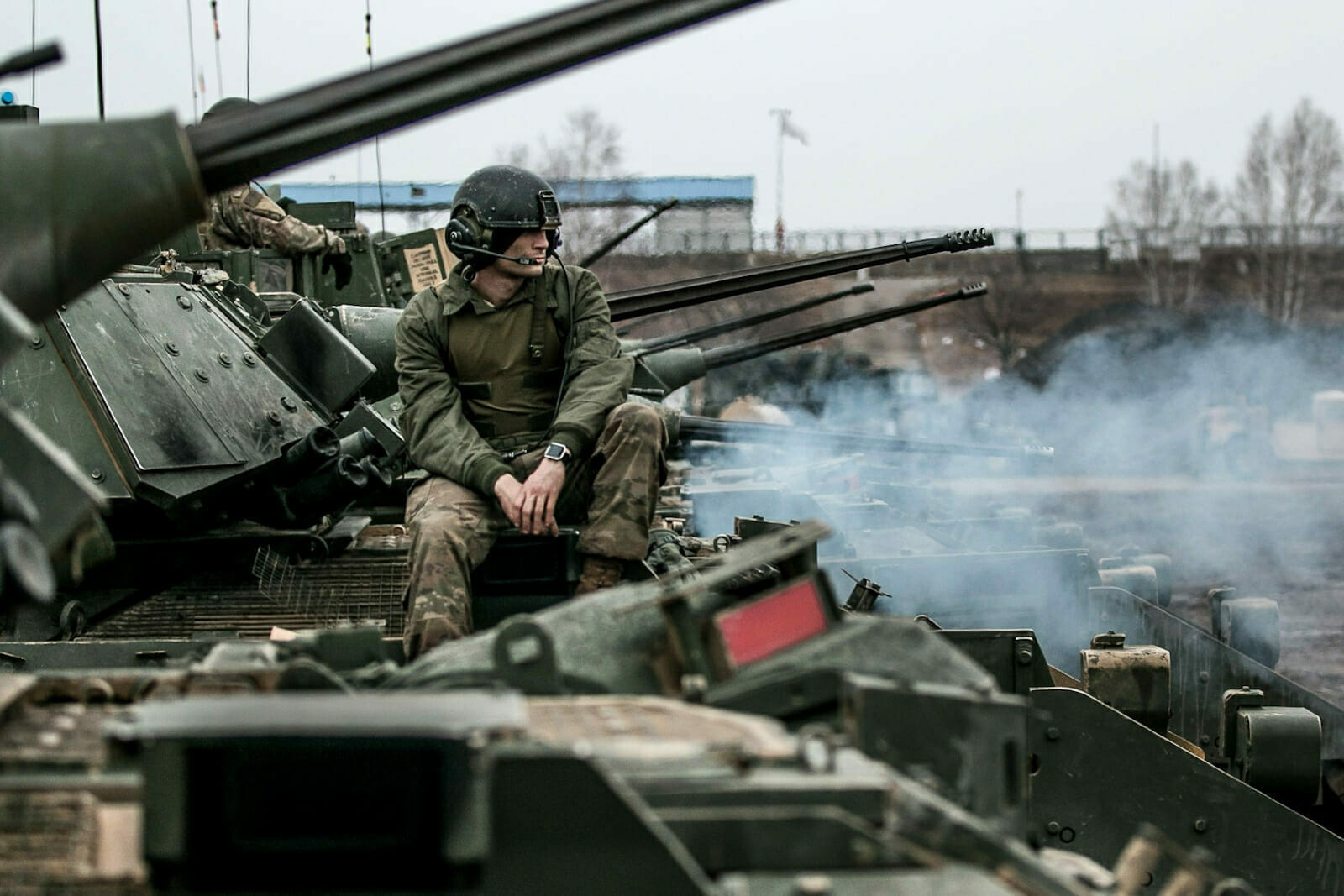
U.S.-Poland Relations in the Age of Trump
Relations between the United States and Poland have remained strong ever since Poland gained full sovereignty following the 1989 democratic elections and the breakdown of the communist system. Since the end of the Cold War, Poland and the U.S. have shared close relations which have often seen acts of reciprocity by the two countries. Washington strongly supported Poland’s accession to NATO in 1999 and backed its entry into the EU in 2004. Warsaw, on the other hand, championed the cause of U.S. counterterrorism efforts by contributing large deployments of troops to both the U.S.-led coalition in Iraq and the NATO-led missions in Afghanistan.
The strong relationship between the two countries is based on the broadly shared values which U.S. President Donald Trump on his visit to Warsaw on 6 July 2017, talked about. Poland is considered one of the key U.S. allies in the region and one of the strongest U.S. partners in Europe. Bilateral engagement between the two countries extends to areas including but not limited to shared NATO capabilities, counter-terrorism, missile defence, economic growth, energy security, and regional cooperation in Central and Eastern Europe.
Furthermore, with the response to Russian actions in Ukraine, Poland has harboured the cause of stationing the largest U.S. military deployment as part of NATO’s international initiative to secure Europe’s borders with Russia, amid the tensions. Poland’s relations with the United States are important to consider especially at a time when relations between Poland and the EU have remained tense.
Following the landslide victory of the Law and Justice Party in the October 2015 parliamentary elections, Poland and the EU have been at odds over the issue of rule of law in Poland. The decision by Jarosław Kaczyński— the leader of Law and Justice Party to change the way in which the judges of the Constitutional Tribunal are appointed, their tenure and their fundamental duties along with his party’s stronghold over the functioning of Polish state television and radio, have put Poland under intense pressure to comply with EU’s fundamental values. The European Commission in December 2017, triggered Article 7 of the EU treaty against Poland, as a measure to increase pressure on Warsaw to mend its controversial changes to the justice system.
Relations between the EU and Poland have also been strained over the resettlement of refugees coming from Syria and elsewhere. Before the 2015 parliamentary elections, the ruling Civic Platform-led government voted in favour of the European Commission plan to resettle 120,000 migrants at the borders of Greece and Italy. Initially, Poland agreed to take between 4600 and 4800 migrants. However, following the terrorist attacks in Paris and the change in government leading to the victory of the Law and Justice Party, President Andrzej Duda, rejected the European Union’s proposal of migrant quotas to redistribute asylum seekers, stating, “I won’t agree to a dictate of the strong. I won’t back a Europe where the economic advantage of the size of a population will be a reason to force solutions on other countries regardless of their national interests.” Currently, the EU and Poland are at odds over the resettlement of refugees from the Middle East and Africa, with Poland not willing to take the desired number of refugees as stipulated in the European Commission plan.
What is interesting with regard to Poland-EU relations is also the changing nature of the U.S.-EU relations. European countries, for example, Germany and France have shown their disdain towards President Donald Trump over his remarks on NATO, the EU, and his alleged threat at undermining the liberal order in Europe. President Trump has been critical of Germany’s free-riding behaviour both in matters of economy and security. During the July NATO Summit in Brussels, President Trump slammed allies for not contributing their fair share to the collective NATO defence budget. Interestingly, however, Trump’s victory and his remarks over NATO and the future of the EU have not raised many concerns in the Polish polity. This is for two main reasons: a) the Russian threat and b) energy geopolitics.
Ever since the Ukrainian crisis broke out in 2014, Poland has been skeptical of the overall NATO response towards the security of Central and Eastern European countries. At times, Poland has also argued for a heavy military buildup along the eastern border as a measure of deterrence against Russian aggression in the region. From the Polish security perspective, the Ukrainian crisis resembles a much greater risk as it is not only a bordering country but also shares a border with a small Russian enclave Kaliningrad which is a strategically important military stronghold for Russia in Europe.
Poland has often argued that NATO’s strategic military posture in the region is weak insofar as Russia’s anti-access/area-denial capabilities could easily prevent NATO from quickly deploying its troops in a conflict situation. For Poland, if Russia’s actions are not successfully deterred, mid-level conflicts like the one seen in Ukraine could easily sweep across the NATO member states in Central and Eastern Europe.
However, the same viewpoint is not shared by all EU member countries. At present, the risk posed by Russia competes with other threats that the EU faces in the form of refugees, Brexit, terrorism, and economic mismanagement as seen in the case of Greece. Moreover, countries like Germany and France have pushed forward the idea of negotiations which led to the Normandy format talks resulting in the Minsk agreements. Poland’s continuous efforts of playing the Russian card to beef up security in Central and Eastern Europe has only resulted in limited security enhancement along Europe’s border with Russia. EU member states, for instance, France and Germany see Russia’s threat as less imminent as it only resembles a medium-level conflict and due to geography is restricted to Eastern Europe.
Berlin’s Ostpolitik approach towards Russia has drawn considerable criticism from European members and the United States, for valuing economics over security issues with Russia. It is in this regard, that the request by Polish President Andrzej Duda to President Trump for establishing a permanent U.S. military base in Poland needs to be understood. Earlier this year, Poland also signed a $4.75 billion letter of acceptance to purchase the PATRIOT air and missile defence system, thereby making this Poland’s largest military procurement ever. For Poland, prioritizing engagements with the United States serves as enhancing its bilateral security with the U.S. over cooperation with NATO, at the same time, developing and strengthening its own military capabilities.
Another issue that is of utmost importance to U.S.-Poland relations is energy geopolitics that revolves around the Nord Stream II gas pipeline and the Three Seas Initiative. Nord Stream 2 pipeline is a project that is owned by the Russian energy giant Gazprom and supported by a consortium of European companies led by Germany. Both Poland and the U.S. have objected to this project. The Trump administration has even called on Berlin to abandon the project, stating that it not only prolongs Europe’s dependence on Russian gas but also because the United States wants to enter the European gas market and become a major player. Even for Warsaw, reasons are more or less the same as it wants to reduce the share of Russian energy in the European market and wants to become a major energy hub, transporting gas to Central and Eastern Europe. This is where the Three Seas Initiative becomes pertinent.
The Three Seas Initiative is a joint Polish-Croatian project, launched in 2016, with the aim of strengthening trade, infrastructure, energy, and political cooperation among countries bordering the Adriatic, the Baltic, and the Black Sea. The priority of this initiative is to build infrastructure projects along the North-South axis in areas of energy and transport. Through this project, Poland not only strives for full gas independence from Russia but also aims to become an important energy hub providing real-time options for Central and Eastern European countries to diversify their energy imports and reduce their dependence on Russian gas.
Poland already has a fully operational LNG terminal in Swinoujscie, whose capacity at present is around 5 billion cubic meters, with further plans of increasing the capacity from current levels. Furthermore, Warsaw also intends on building the Baltic Pipeline to connect Poland (through Denmark) with the Norwegian Gas fields. The project could give a big boost to Poland’s own energy market and help the Trump administration in its plan of supplying gas to Europe. The first shipment of American LNG to Poland already took place in June last year. It is this convergence of interest that has led the U.S. president to strongly support the development of energy, transport, and digital infrastructure in the area between the Adriatic, Baltic, and Black Seas.
Through the Three Seas Initiative, Poland also wants to position itself as a strong player within the EU. Although Warsaw has emphasized that the project is not directed against Germany or Brussels or against the Nord Stream 2 gas pipeline, relations between EU and Poland and more specifically between Germany and Poland over the issue of rule of law, the resettlement of refugees, and the need to rebalance German hegemony in Europe, makes the Three Seas Initiative more of a political tool by leveraging possible American interests in the region.

